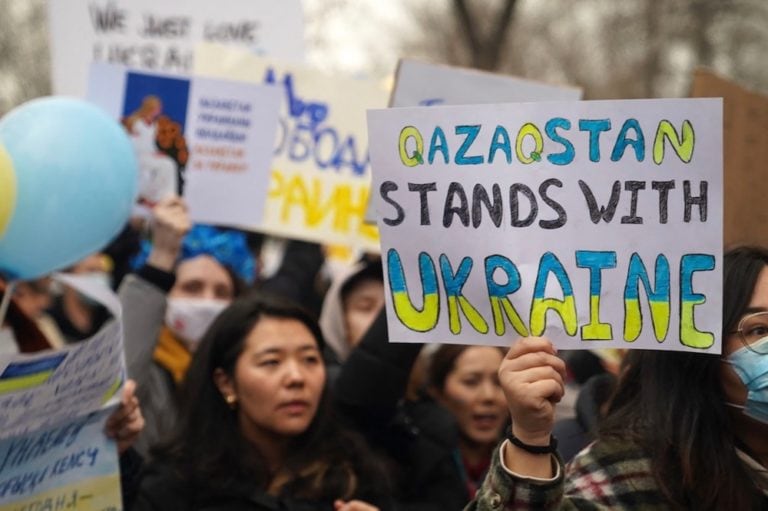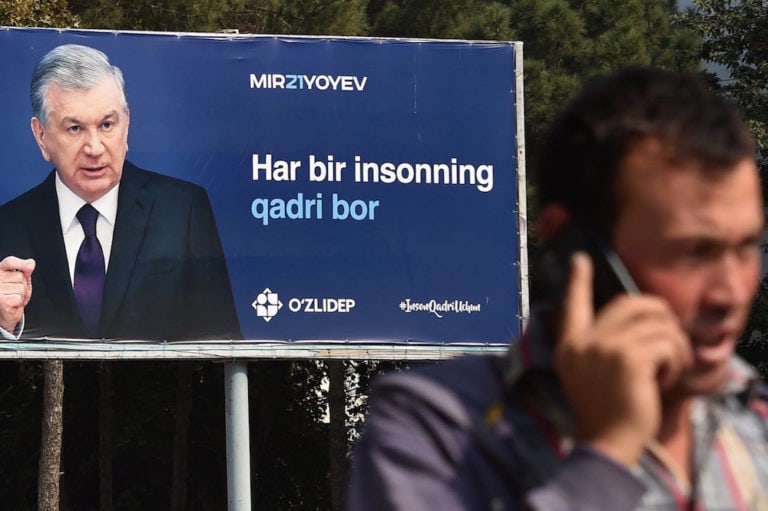The government approved on 5 August the setting up of a "committee of experts on information and mass communication" to monitor the country's media.
(RSF/IFEX) – 25 August 2011 – Reporters Without Borders today deplored the “extremely worrying” moves by the Uzbek government to control the free flow of news in the country, notably by setting up a new official body to curb the media.
“The regime already directly controls all print and traditional broadcast media and has filtered most independent sources of news about central Asia from the sites that are locally available,” Reporters Without Borders said.
“In recent months, it has started a general offensive mainly targeting new media, including a significant expansion of online filtering, greater surveillance and a number of arrests. The authorities were caught short by the uprisings in the Arab world and are now making up for lost time, even though no protests or demonstrations are threatening them right now.”
“The ‘Arab Spring’ or national security cannot in any circumstances be used as a pretext for censorship,” the worldwide press freedom organisation said.
Online censorship seems to be a new regional priority. At an informal summit meeting of the Collective Security Treaty Organisation (CSTO) (whose members include Armenia, Belarus, Kazakhstan, Kyrgyzstan, Uzbekistan, Russia and Tajikistan) on 12 August in Astana (Kazakhstan), officials agreed to make the body an “effective barrier against all risk of revolutionary contagion in the region,” according to the Russian daily paper Kommersant.
Reporters Without Borders is concerned by the growing regional trend towards online censorship and calls on regional governments to fall in line with the 1 June 2011 declaration that Internet access should be universal, issued by special rapporteurs of the United Nations, the Organisation for Security and Cooperation in Europe (OSCE), the Organisation of American States and the African Commission on Human and Peoples’ Rights.
On 5 August, the Uzbek government approved the setting up of a “committee of experts on information and mass communication” to monitor the country’s media. The “experts” are all government employees and the committee’s purely repressive job is to hunt down publications putting out “destructive and negative news likely to influence the social conscience of citizens,” news that undermines “national cultural traditions,” that calls for the “violent overthrow of the established political order”, or that incites people towards “hatred.” The committee focuses on new media and “satellite systems,” seriously threatening foreign TV stations, which are widely received in Uzbekistan through satellite dishes.
“Will Uzbekistan follow the frightening path taken by neighbouring Turkmenistan?” Reporters Without Borders asked, noting that the Turkmen regime last week ordered a drastic reduction in the number of satellite dishes on the pretext that they “spoiled the appearance of buildings.”
The new Uzbek “committee of experts” is the latest addition to the government’s already well-developed surveillance apparatus. It will specifically analyse and interpret data collected by the Centre for Monitoring Mass Communications and eventually suggest new laws. The committee also clearly shows the regime’s intention to block any online challenge to it, as displayed by official statements in recent months condemning “destructive forces” and a supposed “campaign of provocation” against the government that is being waged online.
This policy was dramatically demonstrated by the unprecedented blocking on 9 August, on the eve of the “Internet Festival of the national domaine UZ” to mark the 20th anniversary of the country’s independence, of more than 50 major websites, including the New York Times, Reuters, Bloomberg and Lenta.ru news portals, as well as the search-engine Google, the Reporters Without Borders site and the Soviet sports news site sovsport.ru. Most were accessible again after three days. Uzbek opposition and independent news sites have been blocked for a long time. Websites based in neighbouring Kazakhstan, Kyrgyzstan and Tajikistan have also been censored by the Uzbek authorities.
“The government’s decision to launch its own social networking site, moloqot.uz (‘dialogue’) on 1 September is another worrying sign of a crackdown on Internet users,” Reporters Without Borders said. Officials at a press conference held by Uzbektelekom on 19 August said the new network was aimed at the “moral” education of Uzbeks, to counter the popularity of foreign social network sites. Facebook has 82,220 members in Uzbekistan and the government would like to monitor them by luring them to join Moloqot.
Some mobile phone companies, such as Beeline and Sharktelekom, are suspected of going along with this censorship. The use of proxies or virtual private networks (VPN) are growing among users who want to be secure as arbitrary arrests increase.
Contributors to the popular forum Arbuz.com were arrested recently after commenting online about the Arab uprisings. Human rights activist Saida Kurbanova was picked up on 15 August after posting online last March an article criticising the compulsory use of government credit cards. She is reportedly being sued for defamation. Independent journalist Elena Bondar was arrested on 22 August as she returned from a training course in Kyrgyzstan organised by the OSCE. She was freed after CDs, flash-drives and videos she was carrying were seized from her, on the pretext that they were “undeclared” goods.”
“She is becoming well-known in the independent media and her arrest is clearly a bid to intimidate her or drive her into exile,” a contributor to Uznews told Reporters Without Borders.


